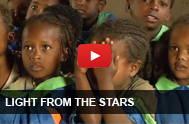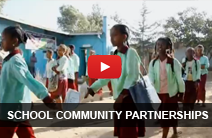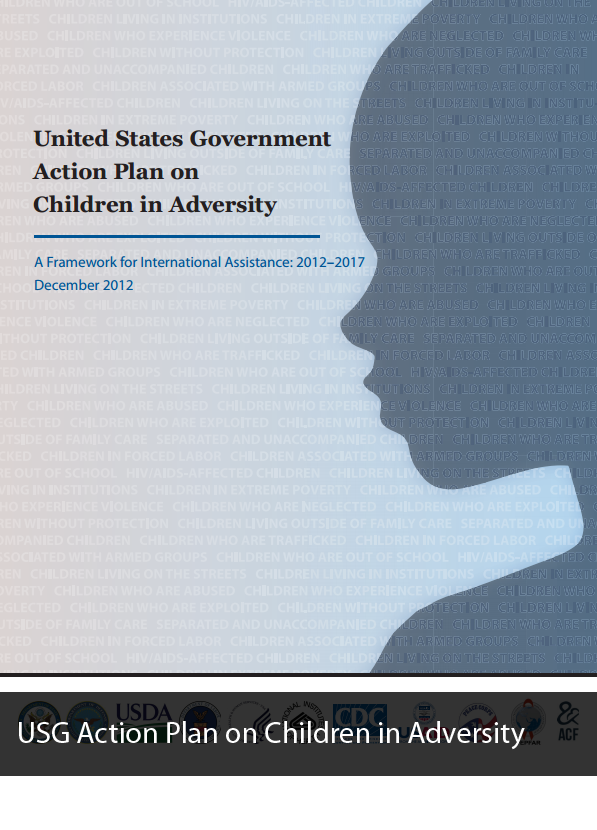Ethiopia
- History
- Our Work
- Foreign Assistance Data
- Dollars to Results
- PARTNERS
- Newsroom
- Fact Sheets
- WORK WITH US
In Ethiopia, HIV prevalence is estimated at 1.5 percent overall and in urban prevalence is 4.2 percent. These rates are largely driven by a lack of awareness, mobility and risky behavior in most-at-risk populations. We build upon PEPFAR’s successes, focusing on developing sustainable country programs through key programmatic areas: prevention, support for those affected by HIV and AIDS, care and treatment, and health systems.
The PEPFAR prevention program in Ethiopia focuses on prevention of mother-to-child transmission, persons engaged in high-risk behaviors, and discordant couples. It also addresses critical gender issues that exacerbate the HIV problem, including early marriage, sexual coercion, and cross-generational sex. The prevention of mother-to-child transmission program provides support to the Government of Ethiopia to prioritize integration of HIV and AIDS within maternal and child health services and extends integration through the deployment of over 3,000 urban health extension workers. PEPFAR also continues to strengthen coordination of HIV counseling and testing programs in urban, peri-urban, and selected rural “hot-spots.”
It is estimated that there are 4.2 million orphans in Ethiopia, of which 18 percent were orphaned due to HIV/AIDS. Orphans and vulnerable children are at increased risk for neglect, abuse, malnutrition, poverty, illness and discrimination, and as they get older, they are more vulnerable to HIV infection. PEPFAR employs a comprehensive and multi-sectoral approach that builds on community and family support structures to care for and track the welfare of affected children. PEPFAR works with the Government of Ethiopia in the nine regions and two city administrations to provide comprehensive and coordinated quality services for 300,000 highly vulnerable children each year.
PEPFAR care, treatment and support activities focus on infrastructure improvement, training, and commodity support including the distribution of basic health care services, nutritional care and support to people living with HIV/AIDS. PEPFAR also supports the national laboratory system, including the procurement of laboratory reagents and supplies for antiretroviral therapy, monitoring, infrastructure support, quality assurance, and site supervision for the National Referral Laboratory and nine regional labs.
Support for health systems strengthening and human resources for health emphasizes: leadership and management of service delivery; human and organizational capacity-building; expansion of private sector engagement; and expanding pre-service training in support of the national plan. PEPFAR continues to work with the National HIV/AIDS Prevention and Control Office to design a community-based system to capture community-level sector inputs into HIV/AIDS activities.
Activities Include
PREVENTION
-
HIV Prevention for Vulnerable Adolescent Girls: Address social norms that contribute to the transmission of HIV by averting HIV transmission in girls who are married to older men, divorced, or girls who migrate to Addis Ababa.
-
Behavioral Prevention: Sustain the achievement of the national target to reduce new HIV infections by 90 percent. Prevent new HIV infections among at-risk populations and strengthen linkages to care and support services in towns and commercial hotspots along or linked with major transportation corridors.
TREATMENT AND CARE
-
Ethiopia Health Infrastructure Program: Design and construct Government of Ethiopia standard health centers and regional warehouses, and renovate health centers experiencing serious infrastructure problems in facilities with high antiretroviral therapy patient loads and in areas of high HIV prevalence.
-
Food and Nutrition Technical Assistance III: Provide technical assistance in nutrition training at national and regional levels. Provide technical assistance in reviewing and updating national HIV/AIDS nutrition policy and guidelines. Provide therapeutic and complementary feeding for adults and children infected and affected by HIV/AIDS. Advance the nutritional status and quality of life of food-insecure people living with HIV/AIDS and receiving home-based care, antiretroviral therapy, and prevention of mother-to-child transmission services. Support economic strengthening activities for HIV-affected households that are also food-insecure. See also: Nutrition
-
Yekokeb Berhan Program for Highly Vulnerable Children: Reduce vulnerability among children and their families by strengthening systems and structures to deliver quality essential services and increase resiliency, building on strengths at the family, household, community, and government levels.
Featured Articles
Photo Galleries
Videos
-
Light from the Stars [7:27]
-
Light at the End of the Tunnel: HIV Treatment in Ethiopia [15:36]
-
Live and Let Live: HIV Case Managers Improve Care Delivery in Ethiopia [3:20]
-
Ethiopian Network for HIV and AIDS Treatment, Care and Support [1:48]
-
Dr. Shah’s Message to African Leadership for Child Survival [4:34]
-
Land of Opportunity: Dairy Industry Program Raises Incomes and Hopes for those with HIV [3:30]
Related Resources
Related News
-
USAID Opens Health Center in Southern Nations, Nationalities and Peoples Region (May 26, 2017)
-
USAID and World Food Programme Improved the Nutritional Status of People Living with HIV/AIDS (March 29, 2017)
-
USAID Improves the Quality of Life for People Living With HIV (November 29, 2016)
-
USAID Transitions National AIDS Resources Center & Hotline Counseling Services to the Government of Ethiopia (June 30, 2016)
-
The U.S. and Ethiopian Governments Break Ground for a New Blood Service Center (May 4, 2016)
-
USAID and Central Statistical Agency Sign Agreement for 2016 Ethiopia Demographic and Health Survey (March 12, 2015)
-
USAID Opens Five New Health Care Centers in Southern Nations, Nationalities, and Peoples Region (March 9, 2015)
-
USAID SHOPS Trade Fair Promotes Access to Finance and Investment for Private Healthcare Providers (December 9, 2014)
-
U.S. Government Program Contributes to Reducing the Impact of HIV and AIDS in Ethiopia (December 4, 2014)
-
New Multi-Drug Resistant TB Facility Opens at Bishoftu Hospital (September 28, 2014)
-
Remarks by USAID Mission Director: U.S. Government Project Prevents New HIV Infections and Strengthens Ethiopia’s Response (April 22, 2014)
-
Four Ethiopian Mothers Win International Award for Health Workers (April 10, 2014)
-
U.S. and Ethiopian Governments Launch Urban Health Program to Reach 1.6 Million Households (February 11, 2014)
-
U.S. Government and United Kingdom Support Private Sector Innovative Health Solutions with Health Enterprise Fund (January 28, 2014)
-
Ethiopia Launches New Multi-Sector National Nutrition Program (June 24, 2013)
-
USAID Launches New Livestock Market Development Project (November 17, 2012)











Comment
Make a general inquiry or suggest an improvement.